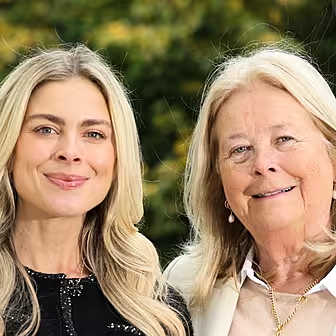Simon Tierney reports from the female section of Mountjoy Prison
During my time visiting the Dochas Centre, the female section of Mountjoy Prison, I met three types of mothers: Those who have their babies with them in the prison itself, those who are expectant mothers and, finally, those whose children are being looked after outside the prison. All three groups of women face the complex challenge of reconciling their incarceration with their personal circumstances and family life.
Men and women experience prison in very different ways. Because women are often the primary caregiver, being incarcerated is especially corrosive on family life.
The governor of Dochas, Mary O’Connor told me, “When a woman comes into prison she brings her family with her and all the issues she has in the community. Whereas when a man comes into prison he is able to leave his family issues with his wife, his partner or his mother outside. That is the main issue”.
Jane, who didn’t want to reveal her real name in order to protect her identity, is a young mother currently serving time in Dochas. She introduced me to her four month old baby. Together they share a cell in the prison. “He’s in the room with me,” she tells me. “He has his own cot. We’re in a twelve hour house so we’re let out from eight o’clock in the morning until half seven in the evening”.
There are currently four mothers with babies in the Dochas, the only prison in Ireland which accommodates infants. The facility integrates the babies into the prison, rather than separating them in a specialised mother and baby unit.
Perhaps the biggest concern facing Jane is what will happen to her baby in eight months time. The Irish Prison Service has a policy that a baby can remain with its mother for 12 months. After that the baby needs to go with a family member or into foster care. However, she is holding on to the hope that she will be leaving at the same time as her him.
Poverty is one of the central issues facing women in our prison service. Patricia Kelleher, deputy governor of Dochas, told me that most of the new arrivals that present to her at the prison are homeless. “They usually just have the clothes on their back,” she says. This homelessness, which often goes hand in hand with a disconnection with their families, means that women prisoners don’t get as many visitors while in custody.
One mother with whom I spoke with is currently serving what she described as a ‘long, long sentence’. Although she can receive visitors, she doesn’t allow her four children to come to the family room in the prison. Instead, she meets them in a neutral location outside of the complex. However, this is tricky to organise so it is an irregular occurrence. Like many incarcerated mothers in Ireland, she shielded her children from the reality of her situation for as long as she could. But eventually they got too old for her to hide anymore. “They didn’t know for about two years. But as they got older I couldn’t keep lying to them. They just thought I was up here working,” she says. This insight is illuminating because it conveys the shame that women prisoners deal with.
Some factions argue that the majority of women in the prison system should not be incarcerated at all. Others argue that mothers shouldn’t be in prison because the welfare of the child should come first. Deirdre Malone of the IPRT (Irish Prison Reform Trust) argues that “services should be offered in the community to address offending and for women to make reparations for the crimes they have committed in these cases”. The reasons for this view are twofold. Firstly, women prisoners generally pose very little risk to society as their crimes are overwhelmingly non-violent. Secondly, the incarceration of women can have a profoundly negative impact on families.
The question is, if women don’t serve their sentence in prison, what are the other ways in which they can pay for their crimes in a different and more positive manner? This is the key issue that needs to be addressed by our governing bodies and policy makers.
Simon Tierney









